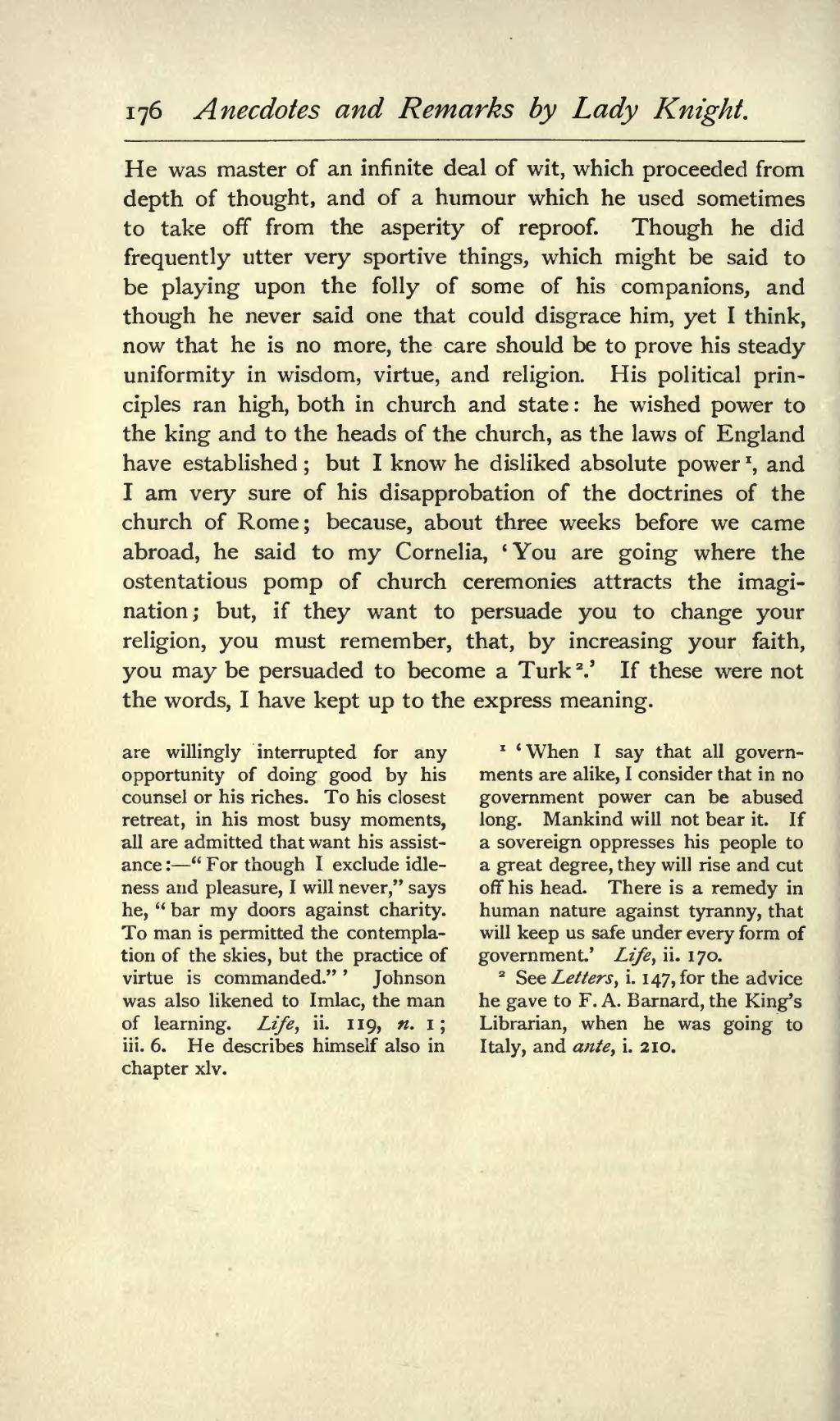176 Anecdotes and Remarks by Lady Knight.
He was master of an infinite deal of wit, which proceeded from depth of thought, and of a humour which he used sometimes to take off from the asperity of reproof. Though he did frequently utter very sportive things, which might be said to be playing upon the folly of some of his companions, and though he never said one that could disgrace him, yet I think, now that he is no more, the care should be to prove his steady uniformity in wisdom, virtue, and religion. His political prin ciples ran high, both in church and state : he wished power to the king and to the heads of the church, as the laws of England have established ; but I know he disliked absolute power J , and I am very sure of his disapprobation of the doctrines of the church of Rome; because, about three weeks before we came abroad, he said to my Cornelia, 'You are going where the ostentatious pomp of church ceremonies attracts the imagi nation; but, if they want to persuade you to change your religion, you must remember, that, by increasing your faith, you may be persuaded to become a Turk 2 .' If these were not the words, I have kept up to the express meaning.
are willingly interrupted for any x 'When I say that all govern-
opportunity of doing good by his ments are alike, I consider that in no
counsel or his riches. To his closest government power can be abused
retreat, in his most busy moments, long. Mankind will not bear it. If
all are admitted that want his assist- a sovereign oppresses his people to
ance : " For though I exclude idle- a great degree, they will rise and cut
ness and pleasure, I will never," says off his head. There is a remedy in
he, " bar my doors against charity. human nature against tyranny, that
To man is permitted the contempla- will keep us safe under every form of
tion of the skies, but the practice of government.' Life, ii. 170.
virtue is commanded."' Johnson 2 See Letters, i. 147, for the advice
was also likened to Imlac, the man he gave to F. A. Barnard, the King's
of learning. Life, ii. 119, n. I ; Librarian, when he was going to
iii. 6. He describes himself also in Italy, and ante> i. 210. chapter xlv.
�� �
